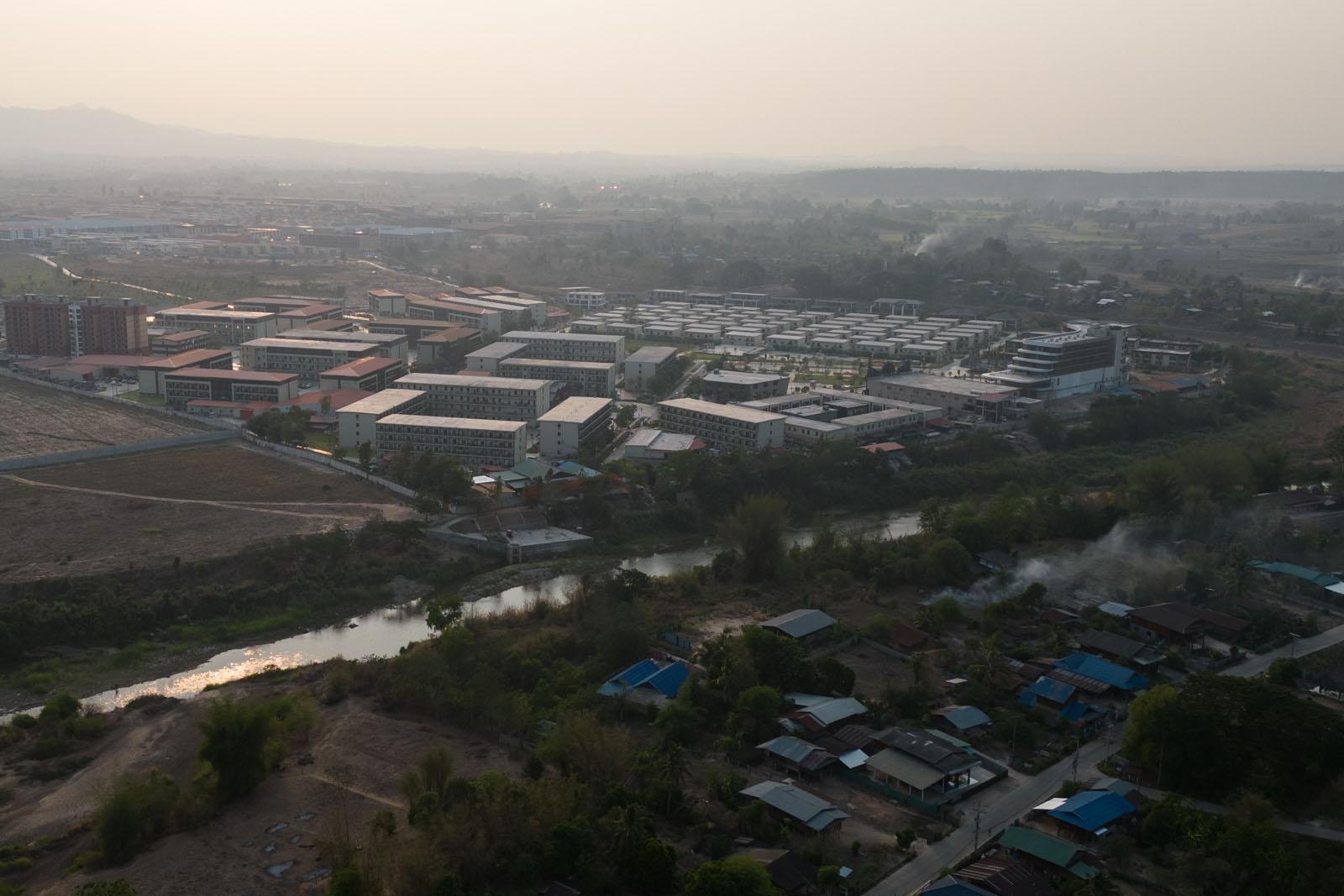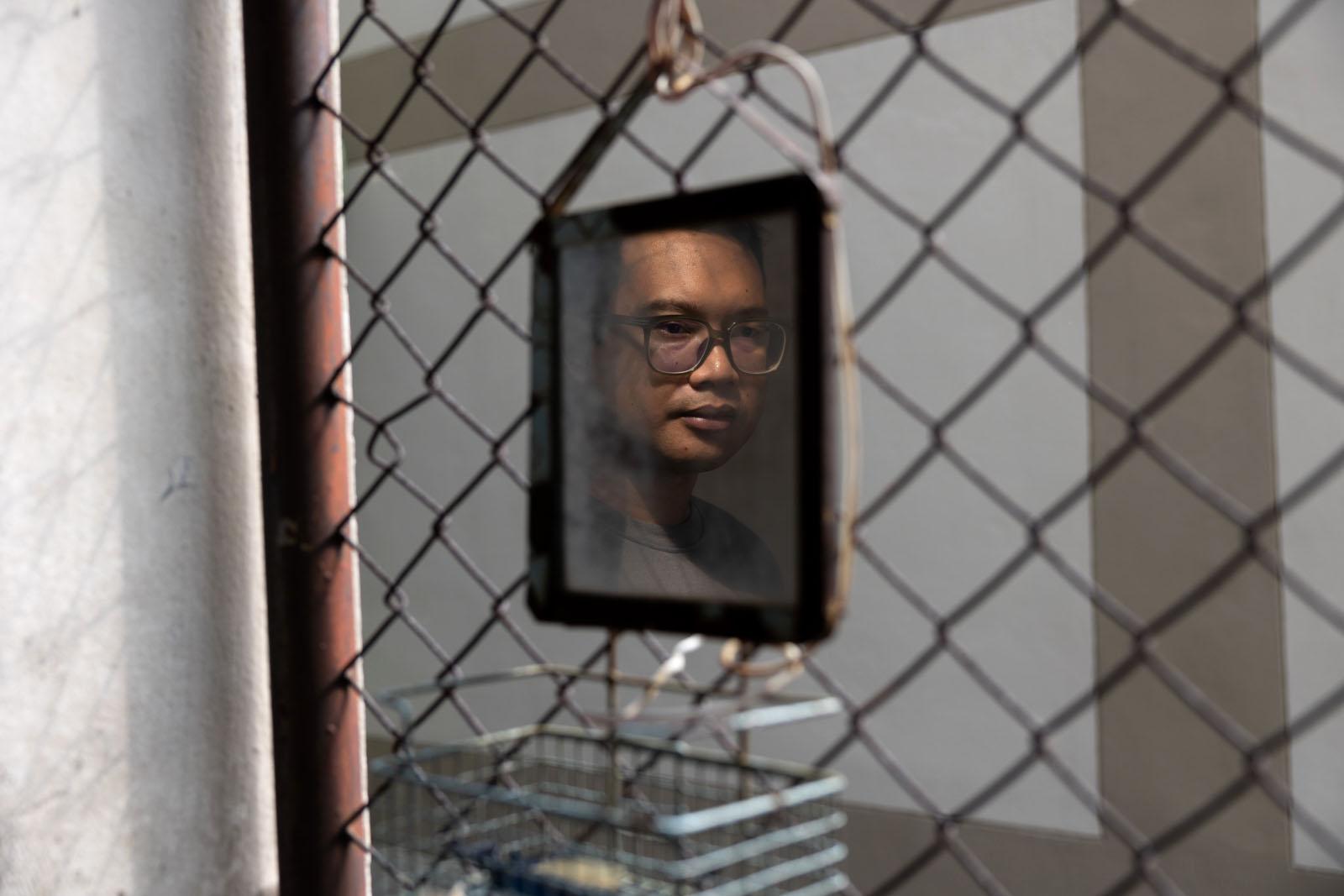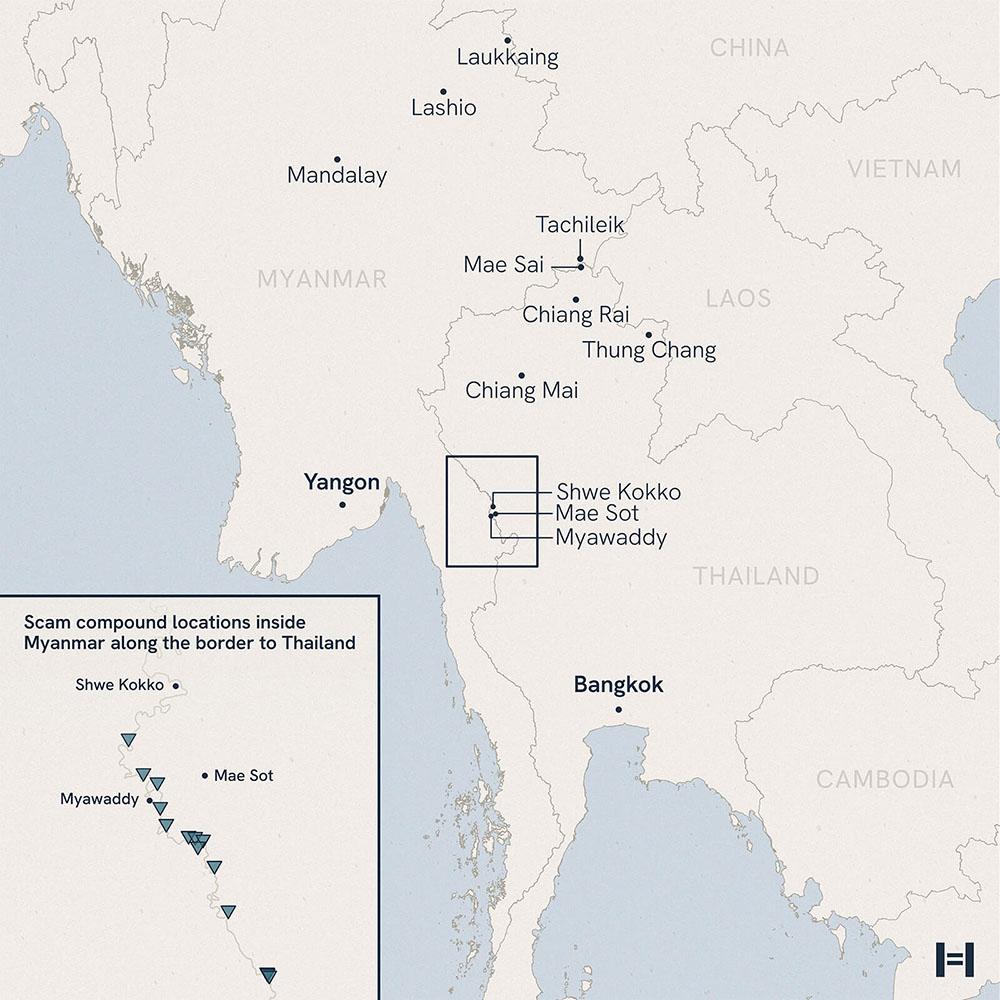Public Project
WHEN CYBERCRIME TRAFFICKING VICTIMS BECOME SUSPECTS
Summary
Lured by fake jobs ads, they thought they were starting new lives. Instead, they found themselves enslaved by scammers and betrayed by a system meant to save them.
Prapas and Nathaphan escaped a scammers' compound, but their nightmare was far from over. Their rescue marked the start of a new battle for justice.
Clinks of manacles presaged the arrival of eight men in prison garb, shuffling their chained ankles as they were escorted into a courtroom. They stood accused of heinous crimes: colluding with scammers across the border in Myanmar to defraud unsuspecting Thais and foreigners. Throughout 2023, the men worked alongside a group of transnational cyber criminals from the township of Laukkaing, in Myanmar’s northeast, the prosecutor told the court in Chiang Rai, where their trial was held.
Their arrests and trials came just as Thailand is grappling with the epidemic of telefraud, which has caused incalculable damages in financial losses as well as mental anguish in the kingdom, with many victims having been fleeced of their entire life savings. According to one tally by the national police force, at least 540,000 people have lost a collective 63 billion baht (about 1.77 billion USD) to scammers in the past two years alone.
But two of the defendants assert that they are victims and were duped by bogus job notices into what they described as slave labour for the cybercriminals and that their alleged roles in the operations have been misrepresented by the authorities.
For their alleged roles in the cyber scam rings, both Prapas and Nanthaphan have been charged with a litany of offences, including fraud, transnational crimes, and human trafficking. The most serious charge carries a maximum penalty of 15 years in prison.
In a recent report, a United Nations regional office in Southeast Asia notes that forced criminality, where individuals are deceived and coerced into participating in scams and frauds, is a rising threat that must be urgently addressed by law enforcement authorities in the region.
“These scammers and call centre criminals, which are mostly funded by influential Chinese individuals, keep changing their methods all the time,” Jaruwat, who co-founded the Immanuel Foundation in 2011, said in an interview. “Those methods now include posting job notices on Facebook and duping people into working for them.”
A study conducted by the United States Institute of Peace traces the roots of the current plethora of transnational cybercriminals to the shady network of loosely regulated casinos and online gambling operations that proliferated throughout some parts of Southeast Asia in the 2000s.
Over time, these business empires gradually evolved into sophisticated industrial-scale scam syndicates preying on vast numbers of people across the region and beyond; the USIP estimated that the funds stolen by these criminal syndicates likely exceeds 43.8 billion USD a year – nearly 40 percent of the combined GDP of Laos, Cambodia, and Myanmar.
“The scamming operations are powered by hundreds of thousands of people, many duped by fraudulent online ads for lucrative high-tech jobs and trafficked illegally into scam compounds, where they are held by armed gangs in prison-like conditions and forced to run online scams,” the study notes.
The 2021 military coup in Myanmar and the civil war that followed pushed the country even further into a breeding ground for the cybercrime syndicates, with scam compounds operating in the open along Myanmar's border with China and Thailand. Today, tens of thousands of victims remain stranded in such scam compounds unable to escape and help unable to arrive, but even for those fortunately rescued, often the ordeal isn't over.
2,752





















